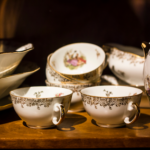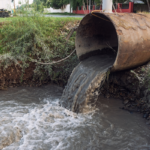Tips on Preventing Accidents on Thanksgiving
Susie endures the hour-long drive to her grandparents’ house to share her homemade pumpkin pie… but she’s running late so she starts to speed. College freshmen attempt to cook an entire turkey dinner in their dorm’s communal kitchen… a friend starts chatting in the hall, and they fail to notice the gravy beginning to burn on the stove. Nancy foregoes the food thermometer. Uncle Greg forgot to bring his heart medication again.
It’s Thanksgiving weekend and scenes like this will play out across the nation. What starts out as fun and festive can quickly take a tragic turn.
More accidents happen on Thanksgiving than either Christmas or New Year’s Eve. Heavy traffic on the road, rich food, and more cold weather conditions creates some unfortunate yet common hazards. The good news is you can prevent these accidents with some planning.
Traveling safely:
- Don’t drink and drive. And, since you can’t account for others’ drinking habits, make sure you drive safely and cautiously. Allow enough time to take the scenic route and/or drive during off-traffic hours. More drivers on the road combined with increased consumption of alcoholic beverages contribute to most driving accidents on Thanksgiving Day, according to a study by the AAA.
- Plan your route ahead of time. Many accidents are caused by checking a map while driving or hesitating because of uncertainty about directions. That short pause to look at your map or your phone might cost you your life. So, check a GPS before you leave and plan your exits and turns well in advance.
- Bad weather accounts for many accidents, like slips and falls. Watch out for ice on the roads and make sure you check the weather report.
Avoiding kitchen accidents:
- Remain in the kitchen when cooking food or have an adult watch the stove if you need to run a quick errand.
- Make sure your smoke alarms are working. Have a fire extinguisher nearby.
- Organize your kitchen to avoid dangerous slips and trips! It’s easy to slip and fall when preparing a large meal like Thanksgiving dinner. All those potato peels and other damp and tacky-feeling vegetable detritus can be easy to skid on and cause a fall. That, combined with dangerous objects like knives and very hot stoves, can be hazardous. Create a system and methodically stick to it: keep cutting boards lined up neatly as you chop, so few if anything falls to the floor and take the time to peel each item over the sink. You can also use a flameproof and nonslip floor covering, to minimize risk of slips and fires.
- If deep frying your turkey for the first time, it’s best to do with the assistance of someone who has done it before. Deep frying a turkey needs to be outdoors on either a driveway or a patio (not on a grass lawn) and handled with the correct equipment. Wear gloves and ideally flameproof clothing. And perhaps most important of all, if there is a fire, DO NOT PUT IT OUT WITH WATER. Water is extremely dangerous when deep-frying, causing the hot oil to splatter explosively and can result in very serious, even fatal, injuries.
- If roasting a turkey always use a timer.
Preventing food poisoning:
- Use a thermometer to check the temperature in the dressing or stuffing in the inner parts of the turkey and confirm your turkey is cooked through.
- Wash cutting boards, knives, and any kitchen tools and/or utensils with soap any hot water after contact with the raw turkey. It’s a good idea to use the same cutting board for poultry and other meats and keep a separate one for other non-hazardous and bacteria-transmitting food.
- Another, and safer alternative, is to cook the stuffing separately.
- Throw away all refrigerated leftovers after three days (or earlier).




